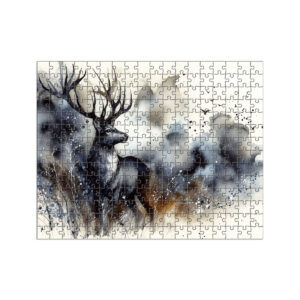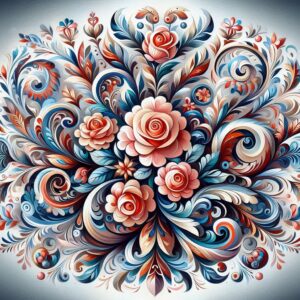
Explore & Play
Discover interesting topics and solve the accompanying crossword puzzle.
God crossword: Exploring the Concept of God Across Cultures
Table of Contents
God crossword
You can either fill in the crossword puzzle directly on this page or click the button in the bottom right corner to print it for free.
——————————————
Exploring the Concept of God Across Cultures: From Zeus to Allah
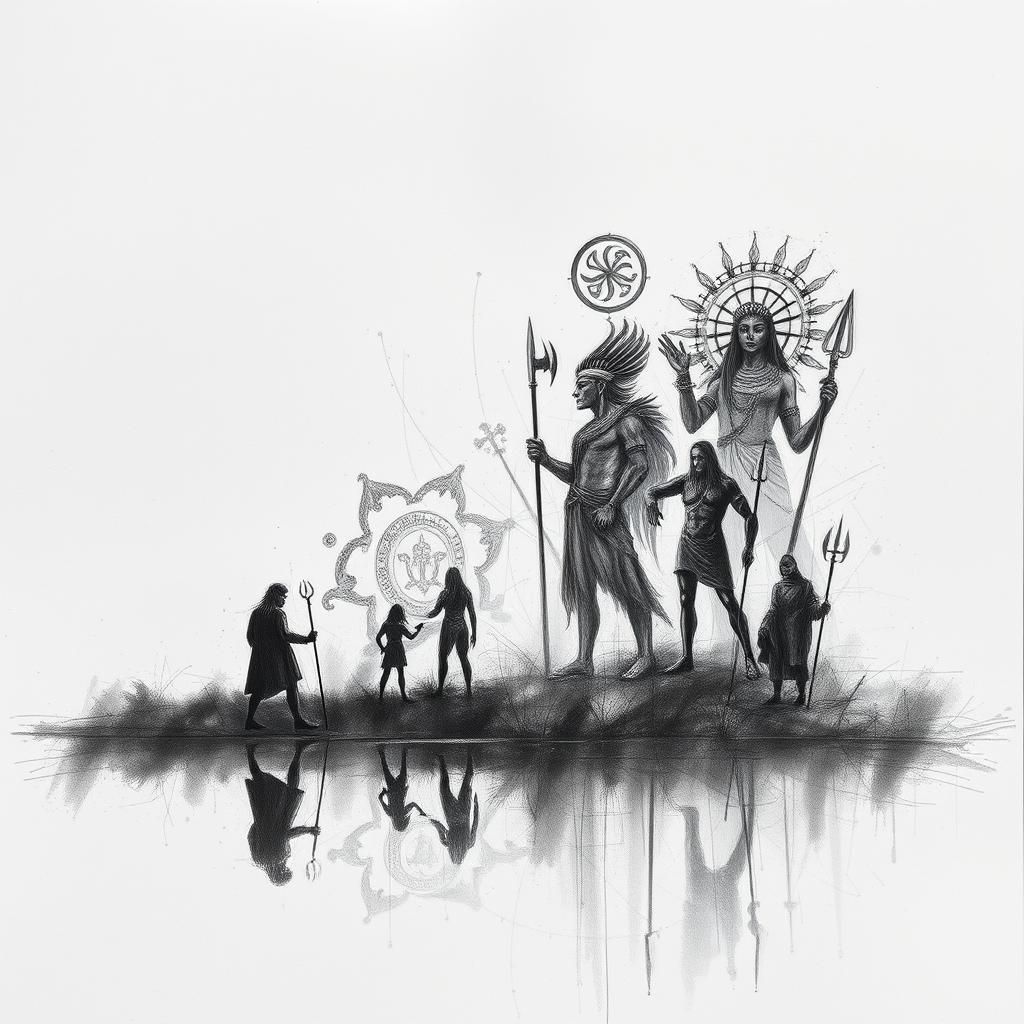
Introduction
Imagine standing at a crossroads where countless paths converge—each lined with stories about gods who shape the skies, the earth, and everything in between. From the sweeping power of Zeus wielding thunderbolts atop Olympus, to the serene presence of Allah guiding millions through faith, the idea of God unfolds differently across cultures, yet always points to something deeply human. Gods are more than distant beings; they are reflections of what people value, fear, and hope for. They help us understand the world and ourselves.
In this article, we’ll journey through some of the most compelling visions of divinity: the bold deities of Greek and Norse myth, the radiant gods of Egypt and Hinduism, and the central figures of Abrahamic faiths. By comparing these diverse traditions, we uncover not only unique roles and stories but also shared threads—how humanity wrestles with meaning, morality, and mystery. Along the way, we’ll touch on why these ancient gods remain alive in modern spiritual quests and cultural debates, inviting us to see the present through the rich lens of the past.
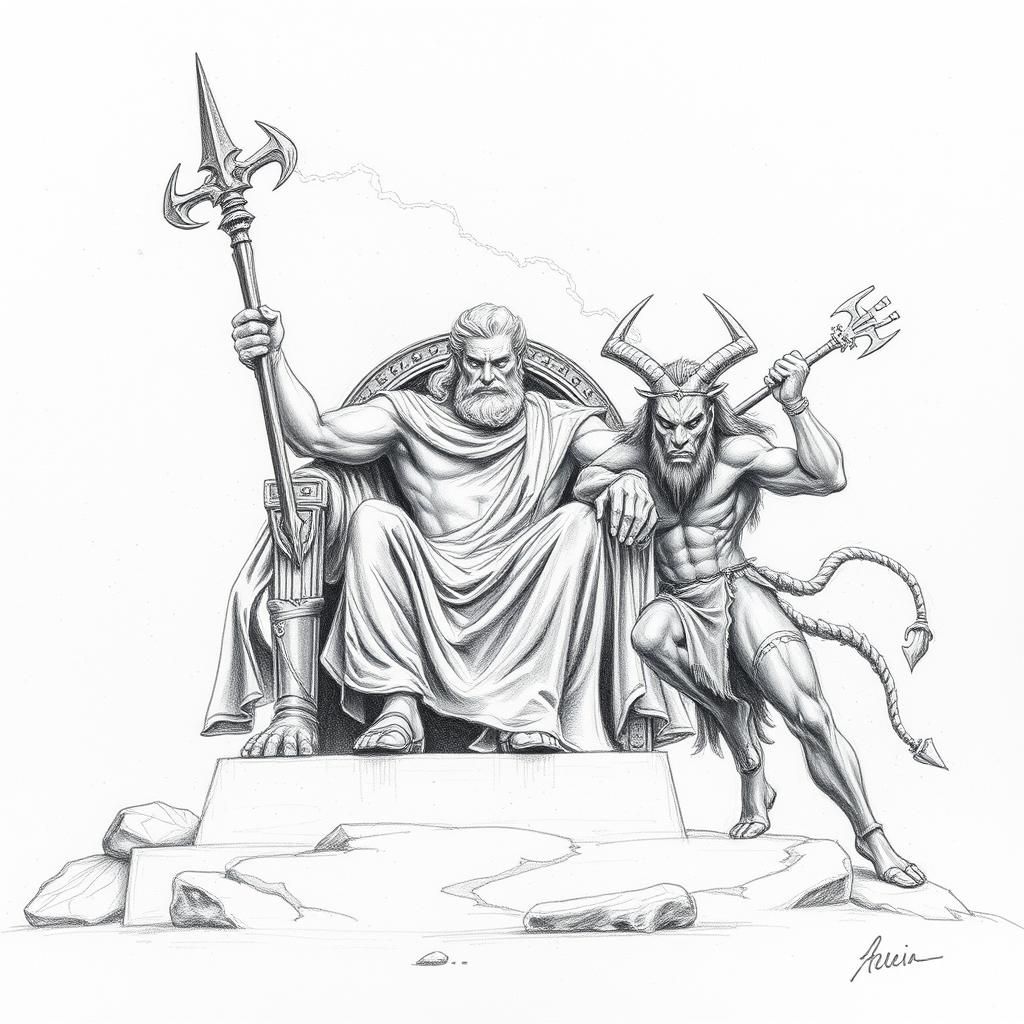
Greek Mythology: Zeus and Other Deities
Zeus: The Chief Greek God
Imagine standing beneath a sky heavy with thunderclouds, the air crackling with unseen energy. In ancient Greece, this atmosphere was the domain of Zeus—the king of gods and ruler of Olympus. He wasn’t just a figure of power; Zeus was the embodiment of authority, justice, and protection over both gods and humans. Holding his mighty thunderbolt, he commanded storms and the heavens, his presence felt in every gust of wind and flash of lightning. In a culture that prized balance and order, Zeus stood as a guarantor of cosmic law, a force ensuring that the delicate dance between mortals and immortals continued without chaos.
The stories surrounding Zeus are as vivid as the lightning he wielded. Tales of his many love affairs, acts of justice, and interventions in mortal affairs create a rich tapestry that shaped Greek identity and values. His image appears in temples, sculptures, and epic poems—visible reminders of a deity who governed not only the heavens but the very moral compass of Greek society.
Other Important Greek Gods
But Zeus was only one thread in the intricate web of Greek divinity. Take Ares, the god of war, who personified conflict’s brutal and unyielding aspect. Unlike Zeus’s calm authority, Ares embodied the intense turmoil and valor of battle—a reminder that war was both a necessity and a terror in Greek life. These gods were more than myths; they carried the hopes, fears, and experiences of people who lived in a world where divine forces shaped every aspect of life.
Greek mythology didn’t just tell stories for entertainment. It forged a culture’s understanding of existence, morality, and the unpredictable nature of life itself. Through their gods, the Greeks explored what it meant to be human—flawed, powerful, vulnerable, brilliant.
Modern Reflections on Greek Gods
Fast-forward to today, and the echoes of Zeus and his divine family still resonate. From blockbuster movies and novels to philosophical debates, these ancient figures spark curiosity and creativity. They ask us questions that remain surprisingly relevant: What does power look like? How do authority and justice balance? Even in a secular world, the gods of Greece invite us to consider our own values and struggles, their stories a timeless mirror reflecting humanity’s ongoing quest for meaning.
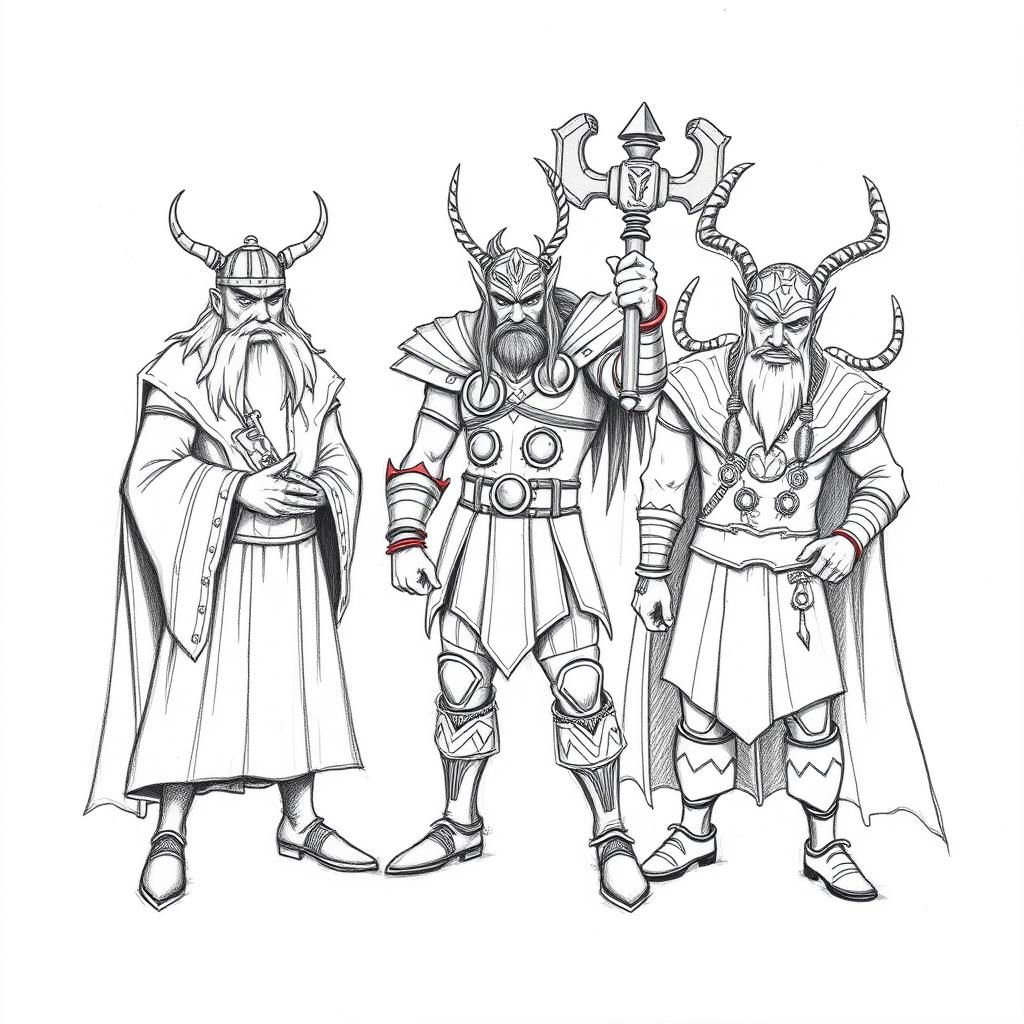
Norse Mythology: Odin, Thor, and Loki
Step into the misty forests and jagged fjords of ancient Scandinavia, where gods were not distant figures but powerful, raw forces shaping everyday life. Odin, Thor, and Loki stand at the center of this fierce, sometimes brutal, yet deeply human mythology.
Odin: The Multifaceted Norse God
Odin is no simple deity. Known as the Allfather, he wears many hats—god of wisdom and war, ruler of the dead, and keeper of runic knowledge. He’s often portrayed with one eye, a sacrifice made in exchange for cosmic insight, reminding us that wisdom demands a price. Odin’s presence lingers over hanged men and prisoners, symbols of liminality and transformation. He’s not just a god of might but of complexity and mystery, straddling the line between life and death, order and chaos.
Thor and Loki: Warrior and Trickster
Thor, with his mighty hammer Mjölnir, embodies raw strength and protection. He’s the thunder rolling over icy mountains and the guardian who shields gods and humans alike from giants and chaos. Wandering across the skies, Thor’s power struck fear into foes and hope into the hearts of his people.
Loki, by contrast, dances in the shadows—mischievous, unpredictable, and sometimes downright dangerous. The trickster god weaves chaos and change, reminding us that disorder can be both a threat and a catalyst for new beginnings. His stories brim with cunning plots and shape-shifting escapades, adding a restless energy to Norse tales that challenges the gods and mortals alike.
Norse Mythology in Modern Spirituality
Today, the allure of Odin, Thor, and Loki resurges, capturing the imagination of a new generation. Their stories appear everywhere—from blockbuster films to spiritual revivals—offering symbols of resilience, wisdom, and the messy complexity of existence. For some, these gods are more than legends; they’re guides through life’s battles and transformations, bridging ancient belief with modern quests for meaning. Isn’t it something that the thunder in the sky and the whisper of a trickster god can still speak to us across a millennium?
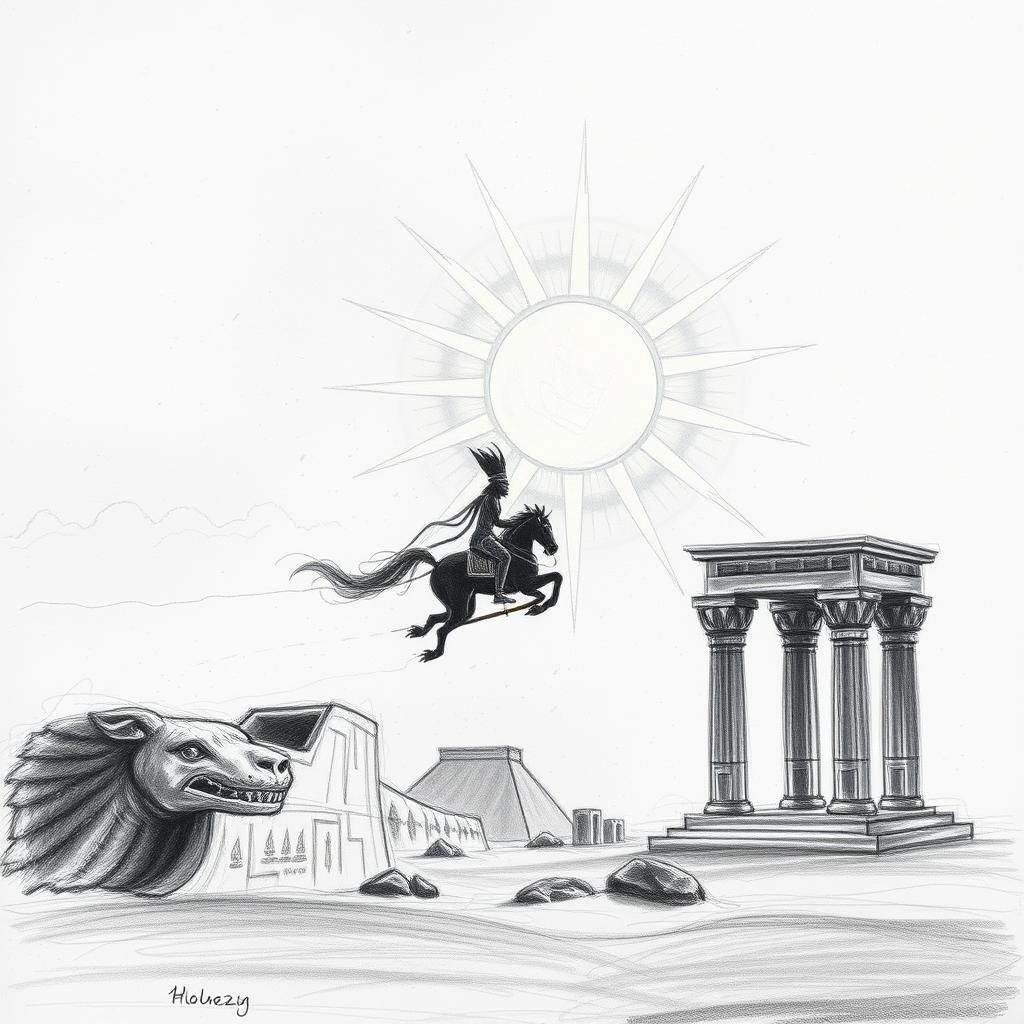
Egyptian Mythology: Ra and Divine Creation
Picture the blazing sun rising over the Nile, spilling golden light onto temples carved from stone, bringing warmth to desert sands and life to the fertile banks. At the heart of this ancient world stood Ra, the sun god, whose fiery chariot crossed the sky each day, chasing away darkness. To the Egyptians, Ra wasn’t just a god; he was the breath of life itself, the cosmic force that ordered the universe and kept chaos at bay.
Ra’s symbolism runs deep—he is the source of creation, embodying the relentless energy of the sun that nourishes crops, fuels growth, and sustains order. Every dawn was a promise of rebirth, a daily victory over the night, a cycle that mirrored the eternal balance Egyptians sought in their own lives. In majestic temples like Heliopolis, priests honored Ra with rituals meant to maintain this divine harmony, connecting people with the rhythms of the cosmos.
His influence permeated Egyptian art and architecture; from the towering obelisks that caught the sunlight to intricate frescoes depicting his solar barge navigating the heavens, Ra was an ever-present force. Myths spun around him not only explained natural phenomena but also grounded the Egyptian sense of moral and cosmic order—a reminder that life flowed from a source both powerful and benevolent.
Even today, Ra’s legacy shines beyond Egypt. His story invites us to consider how the sun, a universal symbol of life and renewal, shapes spiritual understanding worldwide. In modern spiritual dialogues, Ra often emerges as a symbol of light overcoming darkness, order emerging from chaos—a timeless reflection of humanity’s search for meaning in the natural world.
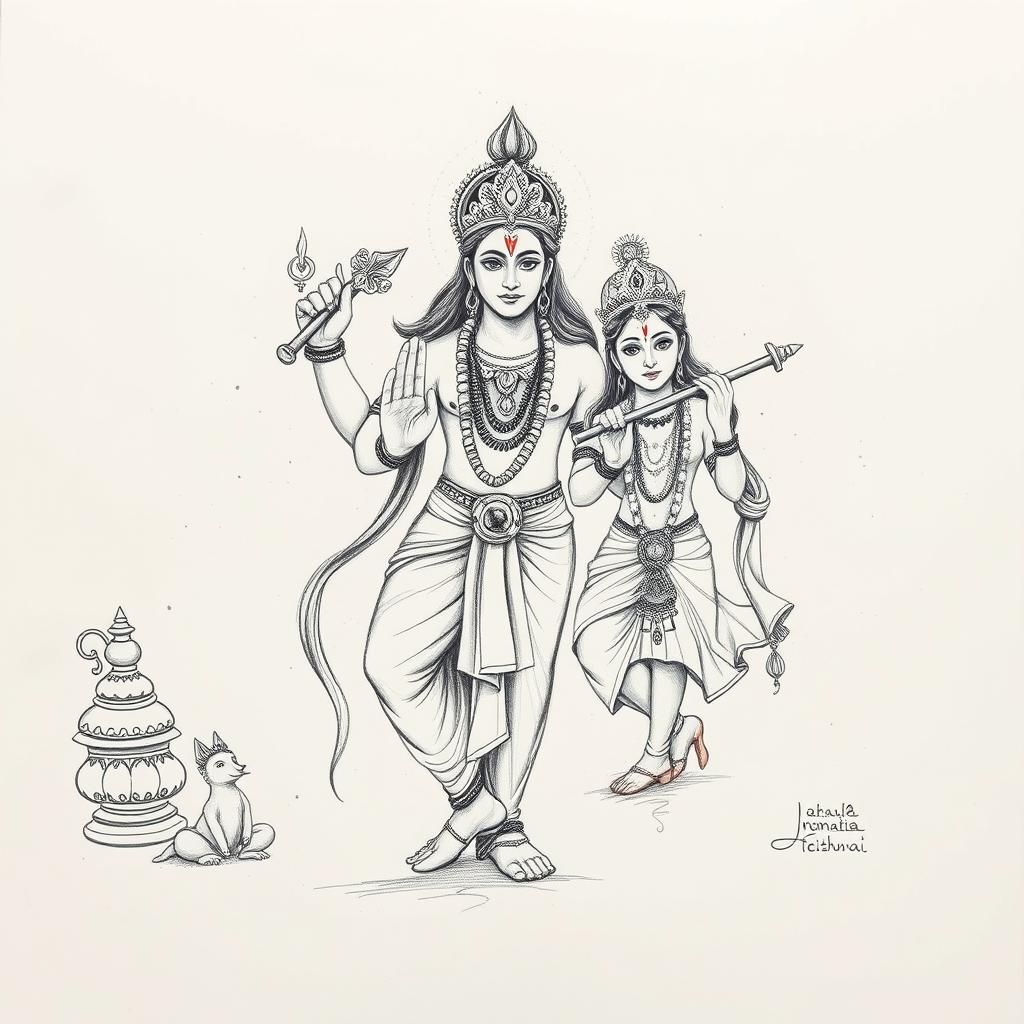
Hindu Tradition: Vishnu and His Avatars
Step into the vast tapestry of Hindu belief, and one figure stands as a steadfast guardian of balance and order: Vishnu. Known as the preserver of moral law—dharma—Vishnu holds the universe steady, intervening whenever chaos threatens to tip the scales. But what makes him truly unique are his avatars, earthly incarnations that descend in times of turmoil to restore harmony. Imagine a cosmic guardian who doesn’t just watch from afar but steps directly into the world, donning many forms as needed.
Among these avatars, Krishna shines especially bright. Not simply a hero or warrior, Krishna’s story weaves together the playful and the profound—from enchanting childhood tales to guiding hearts through philosophical wisdom. His teachings in the Bhagavad Gita, a timeless spiritual dialogue, urge us to act with righteousness and devotion, even amid life’s fiercest battles.
These avatars are more than mythic characters; they live in the heartbeat of countless festivals, rituals, and daily prayers. From the vibrant colors of Janmashtami celebrations marking Krishna’s birth to stories whispered during family gatherings, Vishnu’s presence is both cultural compass and spiritual anchor.
Today’s spiritual seekers continue to find fresh meaning in these ancient tales. Digital spaces buzz with questions about Vishnu’s incarnations, reflecting a global curiosity about how age-old principles of duty, compassion, and courage resonate in contemporary life. In Vishnu’s avatars, the timeless dance between divine intervention and human experience unfolds—offering a path where myth and morality walk hand in hand.
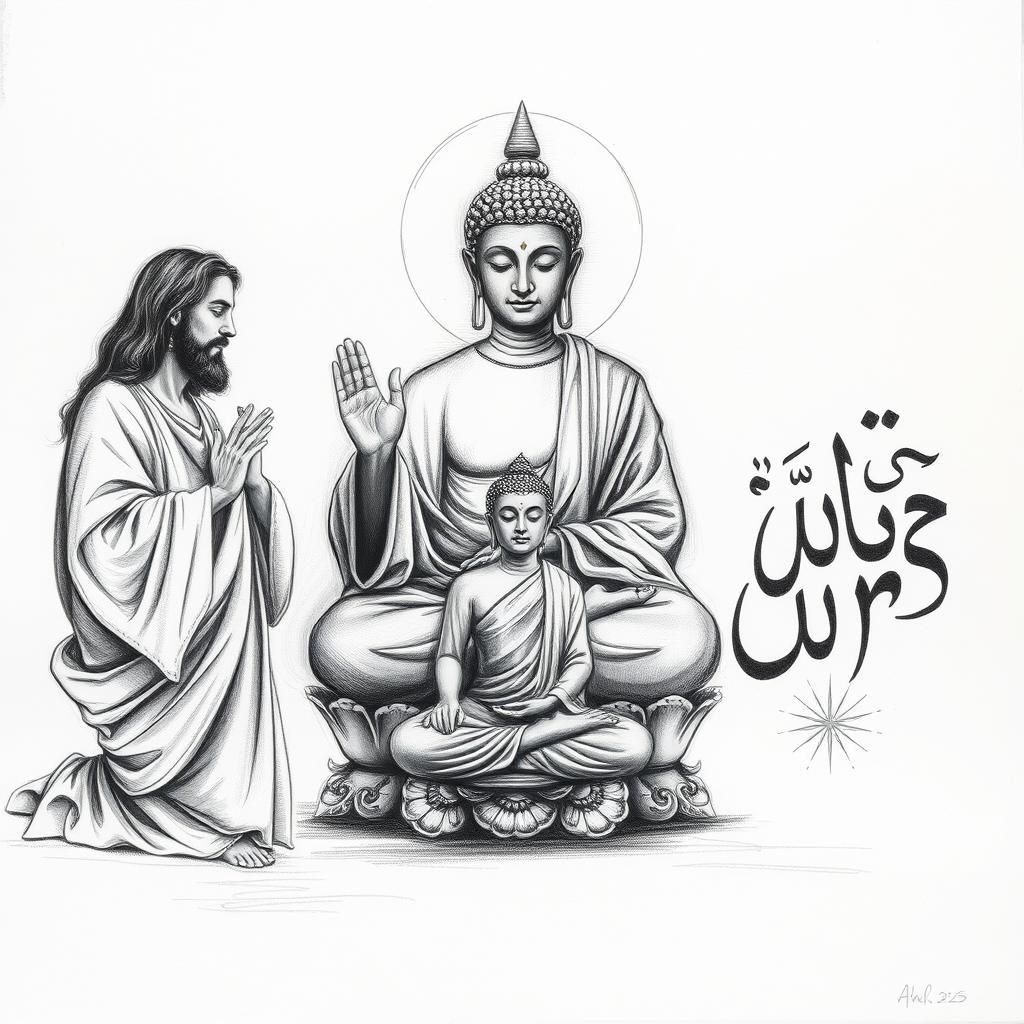
Abrahamic Traditions: Jesus, Buddha, and Allah
Step into a world shaped by three profound figures whose lives and teachings continue to ripple through billions of hearts and histories. Jesus Christ, Buddha, and Allah stand not just as religious icons but as touchstones of faith, morality, and identity for countless cultures.
Jesus Christ lives at the heart of Christianity—as both teacher and savior—his story echoing through centuries. From parables shared by dusty roadsides to monumental debates that still stir the soul, Jesus invites followers to a path of compassion, forgiveness, and spiritual renewal. His influence is woven deeply into art, music, and even law, making him more than a distant figure—he’s a presence felt in everyday life.
Buddha’s journey, on the other hand, unravels a different kind of illumination. The prince who found enlightenment beneath the Bodhi tree traded royal layers for simplicity, inviting the world to seek peace through mindfulness and compassion. His teachings have spread far beyond Asia, touching modern spirituality with ideas of balance, suffering, and awakening that resonate across diverse practices today. There’s a quiet power in Buddha’s legacy—a call to look within and understand the human condition.
Allah, central to Islam’s profound monotheism, is the singular, all-encompassing source of guidance and mercy. The name itself carries reverence, a reminder of unity and absolute faith that shapes not only worship but entire ways of life for Muslim communities. From the call to prayer echoing across city rooftops to intricate art and architecture inspired by divine unity, Allah’s presence molds cultural and spiritual identity in intimate, daily ways.
What ties these figures together isn’t just their spiritual weight but their enduring relevance. Shared themes of compassion, justice, and the search for meaning cross cultural lines, even as their paths diverge in beliefs and practices. In today’s world, where global conversations about faith swirl with complexity and hope, understanding Jesus, Buddha, and Allah helps us glimpse the rich tapestry of human spirituality—inviting us, perhaps, to listen with both curiosity and respect.
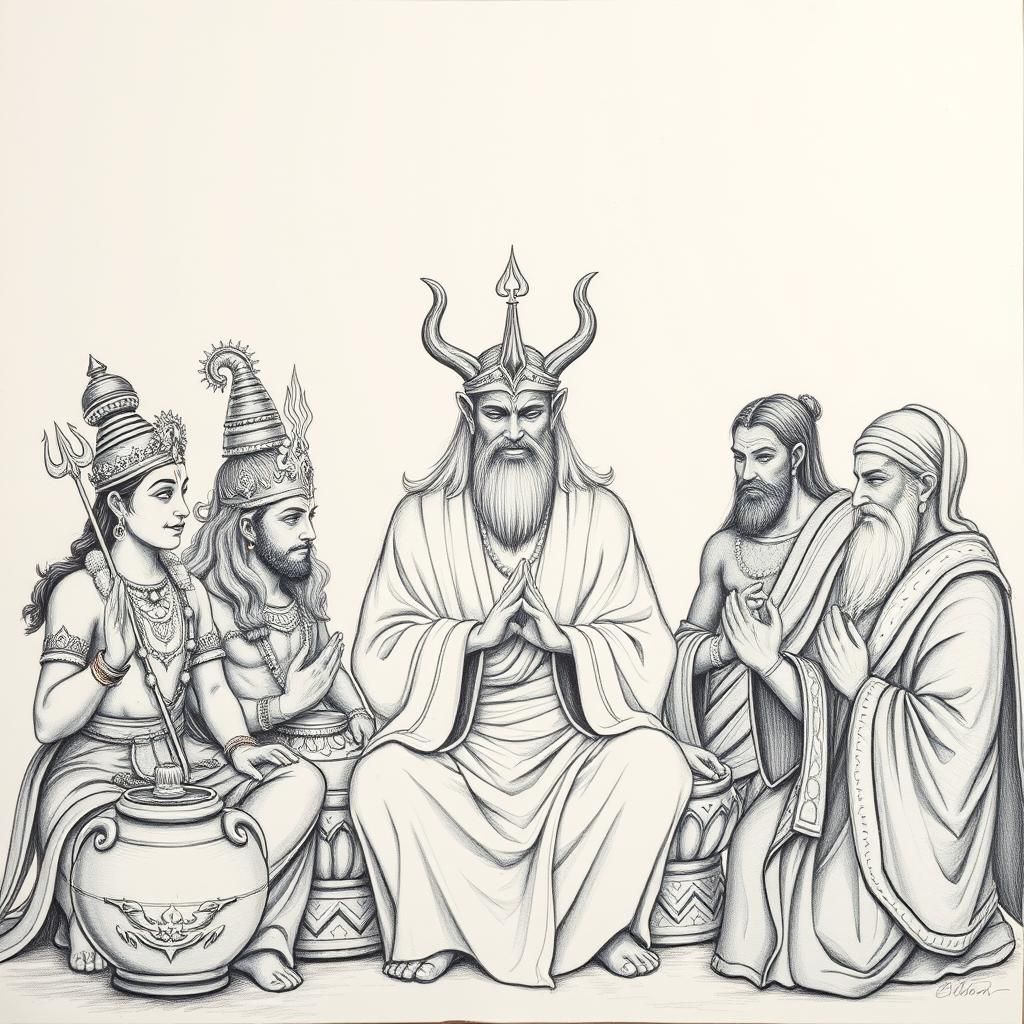
Modern Spiritual Interest and Cultural Curiosity
Step into the digital marketplace of faith in 2025, and you’re met with a fascinating mosaic of questions and quests. People aren’t just Googling the usual suspects—they’re casting a wide net across time and tradition. Names like Vishnu and Odin sit comfortably alongside Zeus, showing a growing curiosity that transcends borders and epochs. This trend isn’t just about casual interest; it reflects a deeper desire to understand the divine in its many forms, inviting people to explore spirituality beyond their inherited beliefs. (Source: Relevant Magazine)
At the same time, conversations around Jesus, Buddha, and Allah are evolving. These figures, central to Christianity, Buddhism, and Islam respectively, continue to inspire both devotion and debate. People wrestle with their teachings, cultural roles, and relevance in a rapidly changing world. Here, mythology and religion intermingle—sometimes harmoniously, sometimes tensely—shaping spiritual identities that are as diverse and nuanced as the traditions themselves.
What’s remarkable is how ancient stories and rituals find fresh meaning today. The blending of old and new perspectives invites us to see divinity not as a fixed point, but as a living, breathing dialogue—one where cultural respect and curiosity open doors rather than close them. In this modern spiritual landscape, every question asked online is a step toward greater understanding, making faith feel less like a relic and more like a conversation we all share.
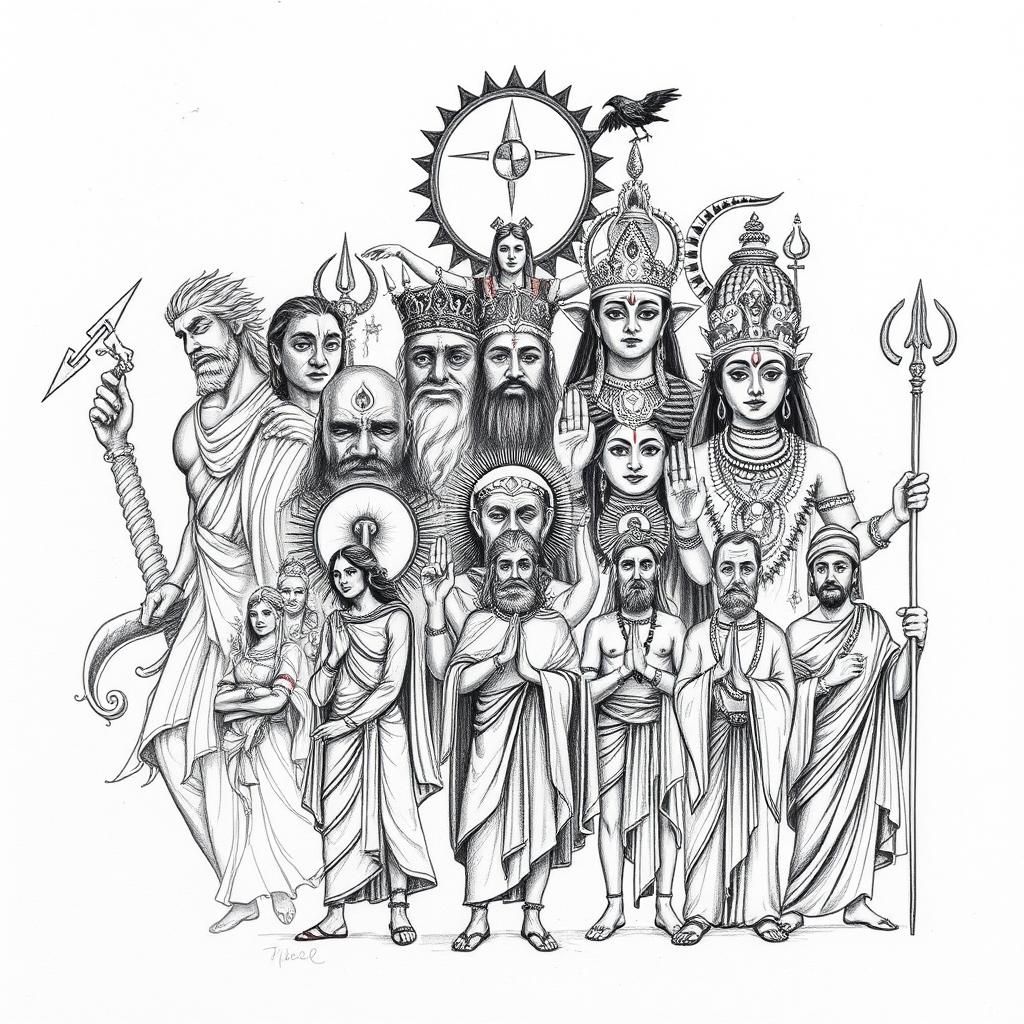
As we’ve journeyed through the stories of Zeus, Odin, Ra, Vishnu, and the figures of Abrahamic faiths, one thing stands clear: the idea of God is both timeless and endlessly varied. Each culture shapes its divine figures to reflect the values, fears, and hopes of its people—whether that’s Zeus ruling the skies with thunder, or Vishnu stepping down as avatars to restore balance. These gods and spiritual leaders aren’t just characters from old tales; they continue to influence how millions understand their place in the world.
What’s striking is how these divine archetypes—ruler, protector, trickster, preserver—speak to universal human experiences. They offer us stories about power and sacrifice, justice and compassion, chaos and order. In their diversity, they remind us that spirituality is a living, breathing conversation crossing borders and eras.
Today, as faith seekers and curious minds turn to online searches and dialogues, we see these ancient figures reemerging in fresh, sometimes unexpected ways. They invite us to look beyond dogma, to explore meaning with respect and openness. The concept of God is no longer fixed; it evolves as we discover new ways to connect with the sacred.
So, as you walk away from these stories, perhaps the most meaningful insight is this: understanding the gods of other cultures opens a door to understanding ourselves—and each other—a little better. And in a world as diverse as ours, that’s the kind of awakening that matters.
Share to...
I hope you enjoy the content.
Want to receive our daily crossword puzzle or article? Subscribe!
You may also be interested in
Share to…
Want to receive our daily crossword puzzle?
-
Jigsaw Puzzles
Zodiac Ink Dog Puzzle: Artful Elegance 250 | 300 | 500 Pieces
kr 348,00 – kr 439,00Price range: kr 348,00 through kr 439,00 Select options This product has multiple variants. The options may be chosen on the product page -
Jigsaw Puzzles
Majestic Stag Watercolor Jigsaw Puzzle 250 | 300 | 500 Pieces
kr 348,00 – kr 439,00Price range: kr 348,00 through kr 439,00 Select options This product has multiple variants. The options may be chosen on the product page -
Jigsaw Puzzles
Rose-Tinted Dreams Floral Puzzle 250 | 300 | 500 Pieces
kr 348,00 – kr 439,00Price range: kr 348,00 through kr 439,00 Select options This product has multiple variants. The options may be chosen on the product page















